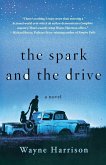Leslie Epstein's new novel, set in Los Angeles in the 1950s and then, in a long final section, in 2000, depicts the Jacobis, the family of a famous film writer and director. Their story is told by Richard Jacobi, elder son, at the summit of his career as a painter. In five extended narratives, the novel traces the trajectory of Richard's self-awareness as he comes to terms with the death of his principled father and its lasting effects on his mother, brother, and himself. At the same time, the novel meditates on the status of Jews and African-Americans in the U.S. after World War II, and beautifully evokes the landscape of Southern California in its last days before the migration to it of millions. Richard's reflections betray no nostalgia, but record forthrightly his feelings for a region and the people close to him. We see him on his living room floor watching, on a brand-new 1952 Zenith television, the broadcast of his father testifying before the House Committee on un-American Activities, at the beach in Malibu sizing up a French poseur in pursuit of his mother and her money, and on a trip with his brother and friends to a bar and brothel in Mexico. Through his sensitive discernment, the novel's stories build until one moment crystallizes all that has come before. In this novel, Leslie Epstein has revealed his past through the lens of his art. Like an American Proust, he shows how memory shapes the crucial events of a life.
Bitte wählen Sie Ihr Anliegen aus.
Rechnungen
Retourenschein anfordern
Bestellstatus
Storno








